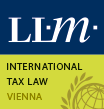Carlo Garbarino
Carlo Garbarino is professor of taxation at Bocconi University, Milan, member of Dipartimento di Studi Giuridici and of the Steering Committee of the PhD Program in International Economic Law of the same university, affiliated member of the Department of Accounting, Bocconi. Member of the Steering Committee Research Department – SDA Bocconi. PhD in Comparative and International Taxation, Master of Laws at the University of Michigan, Visiting Scholar at Yale University Law School and Visiting Professor at Université Sorbonne-Paris, University of Michigan Law School, University of San Paulo, University of Florida. Member of the Faculty of Scuola Direzione Aziendale (SDA) – Bocconi, of International Network for Tax Research – OECD, Paris, and of the Tax Committee-American Chamber of Commerce. Member of the Editorial Board of Alta Scuola Formazione ODC, Milan, Coordinator of Comitato Tecnico Internazionale at Bocconi University, Director of Osservatorio Fiscale e Contabile – SDA Bocconi. Director of the Series Comparative and International Taxation, Bocconi University Press – Egea, Milan; editor of four volumes and three monographs, as well as about seventy publications on Italian, comparative, and international taxation.Courses:
Comparative Corporate Tax Polices
The course is aimed at those students who, having taken domestic and international tax courses, are interested in understanding how tax systems compete and evolve: the course provides an introduction to the comparative dimensions of tax law and endeavors to bridge the gap between domestic and international taxation. We will focus mainly on selected issues of corporate taxes having an international impact and use a comparative approach to analyze the evolution and circulation of tax models. In this approach, tax reforms are viewed as the result of the selection through legal transplants and similar techniques, by domestic policy-makers, of alternative solutions circulating in the market for tax ideas. We will also consider certain “top-down constraints” in the EU process of tax coordination, with specific attention to the “negative integration” prompted by the leading cases of the European Court of Justice in tax matters protecting the four freedoms enshrined in the EC Treaty. We will study the arguments and the reasoning adopted by the ECJ in these cases and their impact on domestic legislation and tax policy. Finally, we will combine the comparative/evolutionary approach and the case method to depict an evolutionary map for EU corporate taxes which reveals a “common core” in respect to cross-border tax consolidation of groups of companies; within this framework we will consider the EU proposal for a common consolidated tax base (CCCTB) and the US proposals for adopting formulary apportionment.
Back to list

